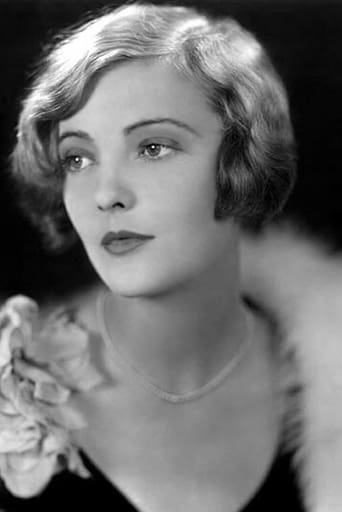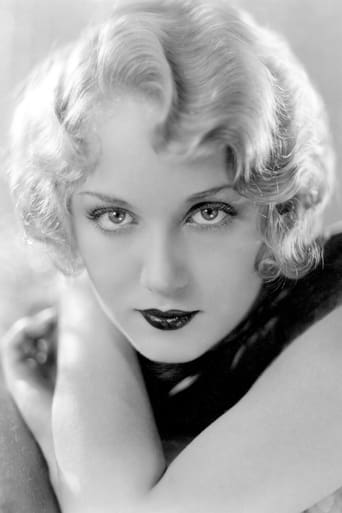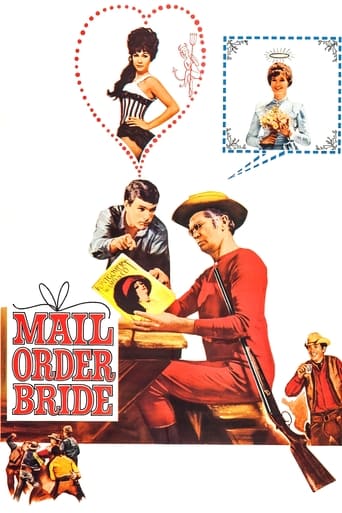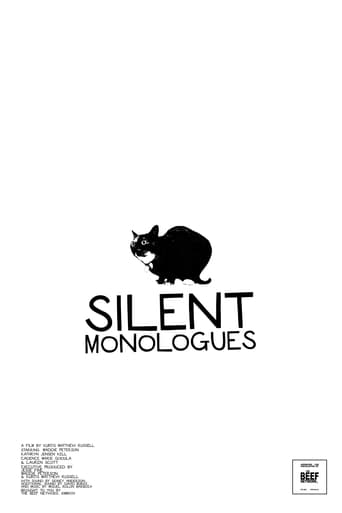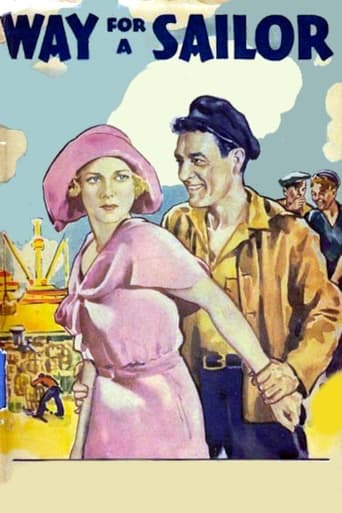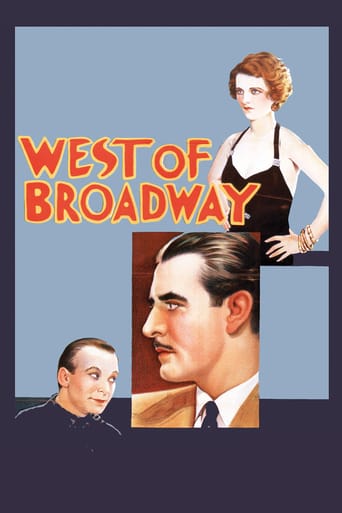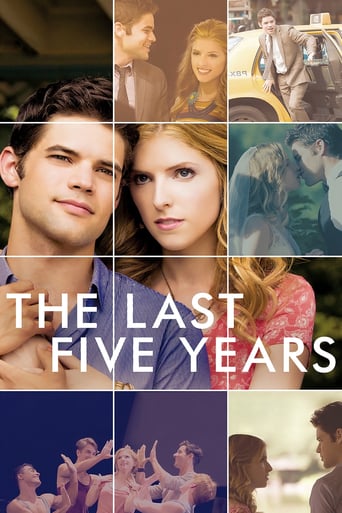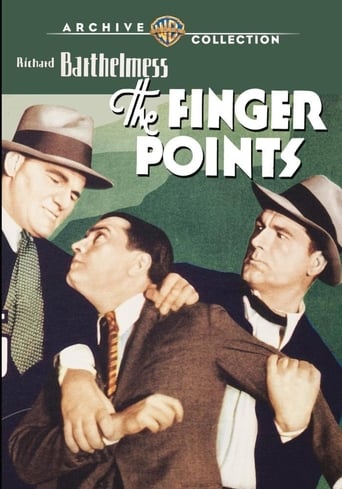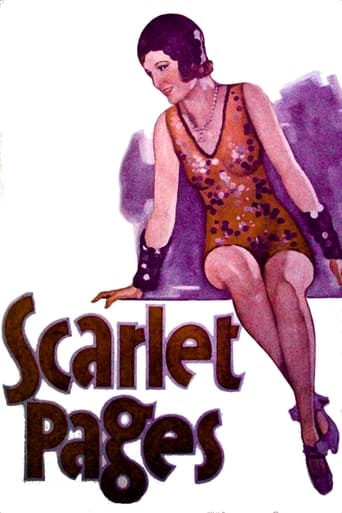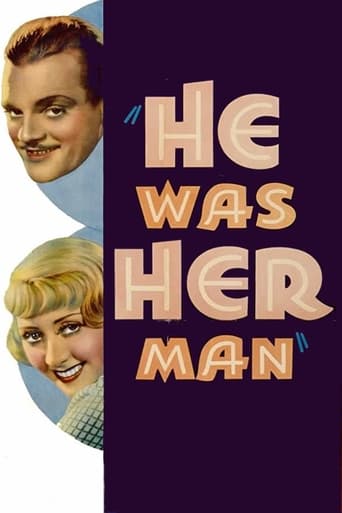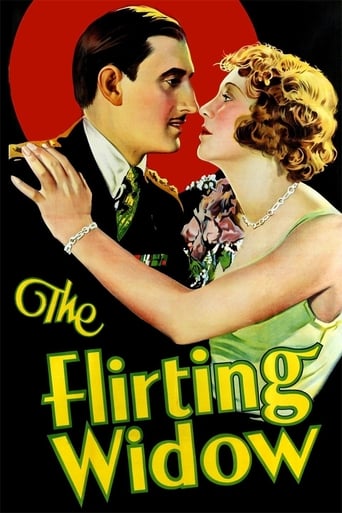

The Flirting Widow (1930)
An older daughter invents a fiancé so that her father will allow her younger sister to marry. However, the lie comes back to haunt her.
Watch Trailer
Cast


Similar titles
Reviews
...and he's quite dashing, a tall charmer of exquisite phrasing and mellifluous voice. Here he's a military man who, for complicated plot reasons, receives a love letter from a woman he never met. That's Dorothy MacKail, now utterly forgotten, but a quite popular and capable Follies beauty who starred in a number of early talkies. She's an heiress who has had to invent a fiancé so her younger sister can wed, and her total fabrication of a love letter has been delivered to Rathbone. It's a slightly stiff early-talkie drawing room comedy of scant surprise and pedestrian direction, by William A. Seiter, and has a not terribly interesting supporting cast; best is Emily Fitzroy, as a tippling aunt. But MacKail and Rahbone were always worth watching, and they do strike sparks as they spar and deceive one another. An OK hour and a half, and if it makes you hungry for more Dorothy MacKail, that's understandable.
This is one movie I flat out disliked. It is without question that worst movie of Basil Rathbone's career. I do not agree that early Rathbone's was bad ( see him as Philo Vance in 'The Bishop Burder Case'), but here he was. What is frightening he was the best one in it. Dorothy Mackaill as a leading lady was the absolute worst. Ugly, boyish, and boring. Despite being British she did not even use her natural accent which stood out as well.( at least Lelia Hyams ( Evelyn) tried). I forgot to mention it was stagy as well, and they had this guy named Faraday who I wanted to punch , that is how bad it was.Spoilers ahead( not that they are needed that is how predictable it was). Mackaill 's character Celia, and Rathbone's Colonel Smith do end up together ( not that I would want her anyway). Here is the most frightening thing: it is not even the best movie from First National in that Era with the word FLIRT in the Title. Next year's "The Naughty Flirt" is way better. Especially when contrasting the looks and acting ability of Alice White and Myrna Loy compared to Mackaill. Was 'The Naughty Flirt' a great movie? No but compared to this dog a classic. ZERO. Stars
The Laughing Widow (1930) * 1/2 (out of 4) A father (Claude Gillingwater) won't allow his youngest daughter (Leila Hyams) to marry the man she loves until her older sister Celia (Dorothy Mackaill) finds someone to marry her. Celia doesn't want to stand in the way of her sister so she makes up a fake fiancé but things take a turn for the worse when this mystery man ends up getting killed and his friend (Basil Rathbone) shows up at the house to give his items to the "widow." THE LAUGHING WIDOW is a real embarrassment and I'm really shocked to see that it came from First National and not some low-rent comedy that was just turning out movies to try and cash in on the sound craze. On a technical level this is one of the worst films I've seen from this era as it seems that the director either fell asleep at the chair or perhaps all the good takes were destroyed and all they had left to use in the film were outtakes or rehearsals. For the most part the camera is always just sitting still so there's no style to think of and most of the time the actors are delivering their lines with no feeling or passion. It really does look as if they weren't giving it their all because they thought it was just a run through or something. Mackaill, who had a pretty good run of films, is pretty forgettable in her part as is Hyams and Gillingwater. The funny thing about watching so many rare movies on Turner Classic Movies is that it keeps proving my thought that Rathbone has to have one of the greatest jumps in regards to talent. We all know he became a fabulous actor in the upcoming years but these early roles of his often find me wondering how it happened. He too is quite bland here and lacks any emotion in the role. The biggest problem with the film is simply how unfunny it actually is. The jokes never work and it appears as if no one was trying to make them work. This here is only recommended to bad movie lovers.
Far-fetched but amusing drawing-room comedy about an elder daughter (Dorothy Mackaill) who fakes a marriage engagement in order for her younger sister to marry, thereby avoiding having to wear "green stockings" at her wedding. The tradition is that younger daughters may not marry unless their older sisters have.But Mackaill is determined to stay free so she fakes a letter to her nonexistent fiancée that she just invented (Basil Rathbone), but it gets mailed by accident. After posting a phony obituary in the paper, who should show up at the country manor (after receiving the letter in Arabia) but the fake fiancée pretending to be a friend of the deceased.Lots of cat and mouse games and verbal sparring between Mackaill and Rathbone makes this an amusing comedy. One character has the silly name of Raleigh Raleigh who gets introduced to Rathbone and says "I'm Raleigh Raleigh" to which Rathbone replies, "Really? Really?" In Mackaill's opening scenes she dressed in a sweater and tweed skirt, her hair slicked back in a mannish cut. Raleigh (the typical English silly ass character) says to her, "You know, in that outfit you almost look like a man." She turns, eyes him up and down and retorts,"You know, in that mustache you look like a man ... almost." British born Mackaill doesn't have an English accent in this film set in England, which is odd. But she's very good and astonishingly gorgeous. Rathbone is fun as the faux fiancée.Emily Fitzroy is hilarious as boozy Aunt Ida (who's in on the charade). Others include Leila Hyams as Evelyn, Flora Bramley as Phyllis, Claude Gillingwater as the father, Anthony Bushell as Bobby, William Austin as Raleigh, and Wilfred Noy as the butler.There's an odd moment of censorship in a scene where Rathbone is putting a watch on a chain around Mackaill's neck. It slips into her cleavage. Rathbone leers as he watches her try to fish out the watch. He's says something that is blanked out, but Mackaill turns and responds sharply to whatever he says.Certainly worth a look to see wonderful Dorothy Mackaill in her early talkie period.


